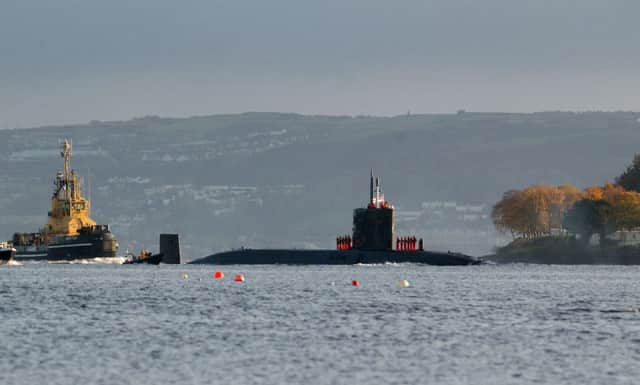David Maddox: UK defence policy stagnating


There are times when the UK appears to be locked in a frenzied debate on an issue and suddenly it becomes clear that the rest of the world has moved on and the whole question has been superseded.
This past week has provided a perfect example in the debate over defence, with the arrival of the American destroyer USS Carney at its new home in Spain and the decision by France to start bombing Islamic State (IS) in Syria. Both events have a direct link with major debates in the UK where policy is in danger of stagnating.
Advertisement
Hide AdAdvertisement
Hide AdThe case of the USS Carney, which I had the privilege of joining for the last few days of its journey to the port of Rota, where it will be based, provides an answer – although not one that would be universally welcomed – to the question of whether nuclear attack is yesterday’s threat or not.
The Carney, which appears capable of fighting a war all on its own, from deepest sea to outer space, will join three other similar destroyers to complete something called the Aegis shield. This is a sophisticated weapons system carried by the four ships made up of kinetic missiles designed to take out ballistic missiles in space.
Nato and the US were clear that the system was designed to respond to a possible attack from Iran and it is clear they still think this is possible despite the recent agreement. They also fear an attack from IS. But the unspoken part of this strategy was that it is clear the Aegis system – which will also have land-based sites in Romania and Poland – is there to make an increasingly aggressive Russia think twice about a nuclear attack.
Certainly the Russian threat was the prime concern of the Eastern European journalists on the ship. For them, unlike the way the debate is conducted in the UK, the Putin problem is a very real danger and not at all theoretical.
In all this comes the UK’s maingate decision next year to renew the Trident nuclear deterrent. Diplomatic niceties meant there was no comment on this specifically, but it was clear that the UK having the deterrent along with the US provides the other part of that Nato shield to protect Europe from attack.
The French decision to bomb IS in Syria shows a boldness that Prime Minister David Cameron seems unwilling to pursue following his humiliating defeat in the Commons two years ago. Like Trident, at some point MPs again are going to be asked to decide what to do and end the talking on whether to take on IS properly or not, but it is clear that the UK’s allies are not going to hang around to await a decision.
The actions by France and the US, and the expectations of others, put pressure on the UK to make up its mind on important aspects of defence. The Tory government has at least committed itself to renewing Trident, even though it is hesitant about Syria. And an important moment will come in the next few weeks when the Strategic Defence and Security Review is published.
But the conference chaos among Labour, which, as Her Majesty’s Official Opposition, is the alternative government, is a cause for concern. The first duty of government is famously to defend its citizens – there is no room for equivocation. So the lack of a debate and resolution in Brighton on whether to support renewing Trident or not, and the suggestion that it could be a free vote, is unprecedented.
Advertisement
Hide AdAdvertisement
Hide AdThe SNP also plays an important role in this. The Nationalists are very clear on wanting Trident to be scrapped but they have offered little so far over what a defence strategy should be, apart from maintaining personnel numbers in Scotland.
This week has shown other world powers are taking action. The UK will be expected to follow.